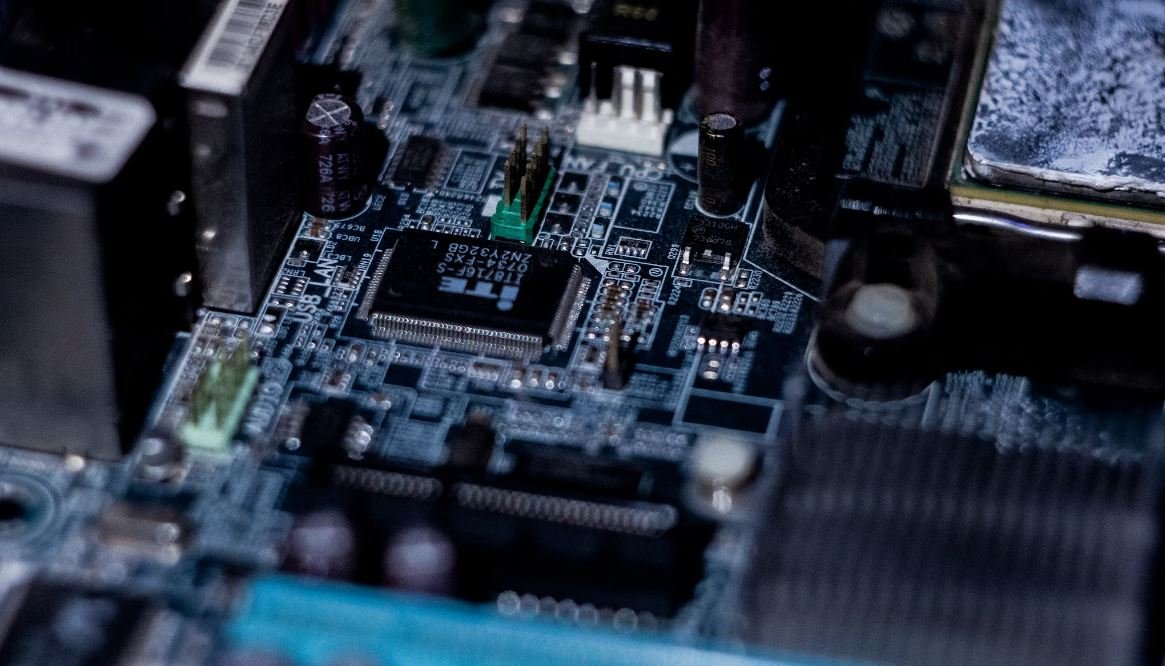Where Is AI Right Now
Artificial Intelligence (AI) is a rapidly evolving field that has seen significant advancements in recent years. From self-driving cars to voice recognition systems, AI is revolutionizing various industries and transforming the way we live and work.
Key Takeaways
- AI is being widely implemented across various industries.
- Machine learning algorithms are at the core of AI systems.
- AI has shown remarkable advancements in natural language processing.
- AI has both benefits and concerns regarding ethics and job displacement.
AI is currently making significant headway in a range of industries, including healthcare, finance, manufacturing, and transportation. In healthcare, AI algorithms are being used to analyze medical data and assist in disease diagnosis. In finance, AI-powered systems are improving fraud detection and stock market predictions. In manufacturing, AI is optimizing processes and increasing productivity. In transportation, self-driving cars are becoming a reality, thanks to AI technologies.
AI’s impact on society is undeniable, extending its reach into multiple sectors, transforming the way we live, work, and interact.
Advancements in Machine Learning Algorithms
Machine Learning (ML) plays a central role in AI development. ML algorithms enable AI systems to learn from data and improve over time without being explicitly programmed. Deep learning, a subfield of ML, has gained significant attention and has produced impressive results in various tasks, such as image and speech recognition.
Deep learning has allowed AI systems to achieve human-level performance in tasks like image recognition, a significant milestone in the development of AI technology.
Natural Language Processing Breakthroughs
Natural Language Processing (NLP) focuses on enabling computers to understand and interpret human language. Recent advancements in NLP algorithms have led to significant progress in areas such as sentiment analysis, language translation, and voice assistants like Siri and Alexa.
- AI-powered language translation systems have drastically improved accuracy and fluency.
- Sentiment analysis algorithms can recognize and interpret emotions expressed in text data.
- Voice assistants are becoming more conversational and can perform complex tasks.
The Ethical Context and Job Displacement Concerns
While AI offers numerous benefits, it also raises ethical concerns. The responsible use of AI algorithms and data privacy are hot topics in the field. Additionally, there are concerns about job displacement as AI systems automate certain tasks traditionally performed by humans.
AI technologies are enabling responsible data usage and ethics discussions to shape the future of the field.
Data on AI Adoption
| Industry | AI Adoption Rate |
|---|---|
| Healthcare | 72% |
| Finance | 68% |
| Manufacturing | 61% |
AI Job Market Statistics
- The global AI job market is expected to grow at a CAGR of 42.2% from 2020 to 2027.
- The demand for AI professionals outpaces the supply, leading to high salaries and attractive career prospects.
Future Prospects
As AI continues to advance, the possibilities for its application are limitless. With ongoing research and development, AI’s potential to reshape society and improve various aspects of our lives is only growing.
AI’s journey has just begun, and the future holds endless opportunities and challenges for further advancement.

Common Misconceptions
AI Can Completely Replace Humans
One common misconception about AI is that it has the capability to completely replace humans in various fields. However, this belief is not entirely accurate. While AI has made significant advancements in automation and performing specific tasks, it still lacks the complex cognitive abilities and emotional intelligence that humans possess.
- AI can enhance productivity and efficiency in many industries, but human supervision and decision-making are still crucial.
- AI systems need constant human monitoring and intervention to ensure accuracy and mitigate potential biases.
- Collaboration between AI and humans is often more beneficial than complete automation, as humans bring critical thinking and creativity to the table.
AI is All-Knowing
Another misconception is that AI systems possess all-encompassing knowledge and can instantly provide accurate answers to any question. While AI can process vast amounts of data quickly, it relies on the information it has been trained on and may not have the ability to access or interpret new or unstructured data efficiently.
- AI can excel in specific domains with narrow tasks after being trained with ample data, but its knowledge is limited to what it has been exposed to.
- AI systems might struggle with nuanced or context-dependent tasks that require human intuition and common sense.
- There is a need for continuous training and updating of AI models to stay relevant and accurate as new information emerges.
AI Will Take Over Employment
Some people believe that AI will lead to widespread job loss, making human labor redundant. However, this belief overlooks the fact that AI has the potential to create new opportunities and enhance existing job roles rather than completely replacing them.
- AI can automate repetitive and mundane tasks, allowing humans to focus on complex and creative aspects of their work.
- New job roles and career paths will emerge to complement and support AI technology, requiring human skills such as problem-solving, critical thinking, and emotional intelligence.
- AI can augment human capabilities, leading to increased productivity and economic growth.
AI is Infallible
While AI systems can achieve impressive accuracy rates, there is a misconception that they are always correct. In reality, AI models are susceptible to biases, errors, and unexpected results, which can have adverse consequences if not properly monitored and controlled.
- AI can inherit biases from the data it is trained on, magnifying existing societal biases and reinforcing unfair outcomes.
- Errors and biases in AI systems can lead to discrimination, privacy concerns, and ethical dilemmas.
- Ongoing testing, monitoring, and transparency are crucial to address and mitigate the limitations and vulnerabilities of AI.
AI is Only for Tech Companies
One prevailing misconception is that AI is exclusively relevant to and utilized by tech companies or industries closely associated with technology. However, AI applications have permeated various sectors, ranging from healthcare and finance to retail and transportation.
- AI can improve medical diagnosis and treatment plans, leading to better healthcare outcomes and patient care.
- In finance, AI enables fraud detection, risk assessment, and personalized investment advice.
- Retail businesses leverage AI for inventory management, demand forecasting, and personalized customer recommendations.

Current Applications of AI in Everyday Life
Artificial Intelligence (AI) has rapidly advanced in recent years, transforming several industries. Here are ten examples of how AI is currently being utilized in our daily lives.
Advancements in AI Research
AI research has greatly contributed to the development of cutting-edge technologies. The following table highlights some notable advancements in the field of AI.
Impact of AI on Healthcare
The integration of AI in healthcare has brought about significant improvements. The table below demonstrates some of the ways AI is revolutionizing the healthcare industry.
AI in Autonomous Vehicles
Autonomous vehicles are set to revolutionize the way we travel. Explore the advancements and capabilities of AI in autonomous vehicles in this illustrative table.
The Role of AI in E-commerce
AI has become an integral part of the e-commerce sector, enhancing user experiences and optimizing operations. Discover the ways AI is currently utilized in the e-commerce industry in this informative table.
AI in Financial Services
Financial institutions are leveraging the power of AI to improve efficiency and provide better services. Delve into the applications of AI in financial services illustrated in the following table.
AI in Entertainment and Media
AI is transforming the entertainment and media landscape, enabling personalized experiences and content curation. Explore how AI is reshaping entertainment and media in this captivating table.
Applications of AI in Agriculture
AI has revolutionized farming practices, leading to increased productivity and sustainability. The table below highlights some of the key applications of AI in agriculture.
The Impact of AI on Job Market
AI’s integration into the workforce has raised concerns about its impact on employment. This table sheds light on how AI is affecting different industries and job roles.
Challenges and Ethical Considerations of AI
While AI presents exciting possibilities, it also brings forth several challenges and ethical considerations. Delve into these important topics in AI through the engaging content of this table.
In conclusion, AI has become an integral part of our lives, revolutionizing various sectors and industries. From healthcare to entertainment and agriculture to finance, AI continues to push boundaries and shape the future. While advancements bring promise, there are also important discussions to be had regarding ethics and responsibility. As AI continues to evolve, it is crucial to ensure its ethical implementation and maximize its potential for the benefit of society.
Frequently Asked Questions
What is artificial intelligence (AI)?
Artificial intelligence refers to the simulation of human intelligence in machines that are programmed to think and learn like humans. It encompasses various technologies that enable computers to perform tasks that traditionally require human intelligence, such as visual perception, speech recognition, decision-making, and problem-solving.
How is AI being used in everyday life?
AI is being used in a wide range of applications in our daily lives. It powers virtual personal assistants, such as Siri and Alexa, autocompletes and recommendation systems on search engines and e-commerce platforms, facial recognition systems, online customer support systems, and even self-driving cars.
What are some current limitations of AI?
While AI has made significant advancements, there are still some limitations. AI systems may lack context and common sense reasoning, which can result in incorrect interpretations or actions. They may also struggle with unstructured or incomplete data and can be biased if trained on biased datasets. Additionally, AI systems currently require extensive computational resources and may not be able to explain their decisions in a transparent manner.
How is AI being used in healthcare?
AI is revolutionizing the healthcare industry. It is being used to analyze medical data and help with diagnostics, drug discovery, personalized medicine, virtual nursing assistants, and robotic surgery. AI algorithms can detect patterns in medical images, identify potential diseases, and assist in decision-making processes, leading to more accurate diagnoses and improved patient care.
What is the impact of AI on jobs and employment?
The impact of AI on jobs and employment is a topic of ongoing debate. While AI has the potential to automate certain tasks and replace some jobs, it also creates new opportunities and can augment human capabilities. Jobs that involve creativity, critical thinking, and social intelligence are less likely to be fully automated. However, AI will require continuous education and reskilling to adapt to evolving workplace needs.
What are the ethical considerations surrounding AI?
AI raises ethical considerations regarding privacy, bias, accountability, and transparency. Data privacy and security become paramount when handling sensitive information. Bias can occur in AI systems if the training data is biased, leading to unfair outcomes. Accountability and transparency are essential to ensuring that AI systems are accountable for their actions and decisions, particularly in critical domains like healthcare and criminal justice.
What are some recent milestones in AI development?
Recent milestones in AI development include breakthroughs in natural language processing, computer vision, and reinforcement learning. Examples include GPT-3, an advanced language model capable of generating human-like text, AlphaZero, a program that mastered chess, shogi, and Go through self-play, and OpenAI Five, a team of AI agents that defeated human professional players in the video game Dota 2.
How is AI being used in the financial industry?
The financial industry is leveraging AI to enhance fraud detection, risk assessment, algorithmic trading, customer service, and personalized financial advice. AI algorithms can analyze vast amounts of financial data in real-time, identify suspicious patterns, and mitigate potential risks. They can also provide personalized recommendations based on an individual’s financial goals and spending patterns.
What are the future prospects of AI?
The future prospects of AI are promising. AI is expected to continue advancing in various domains, including healthcare, transportation, education, entertainment, and cybersecurity. There is ongoing research and development to improve AI algorithms, address ethical concerns, and develop regulations to ensure responsible AI deployment. AI has the potential to fundamentally transform industries and improve the quality of life.
Are there any risks associated with AI?
There are risks associated with AI, including potential job displacement, privacy breaches, algorithmic biases, and the potential for AI systems to be hacked or manipulated. It is important to carefully consider the ethical implications and potential negative consequences of AI deployment. Responsible development and regulation are crucial to minimizing risks and maximizing the benefits of AI.




